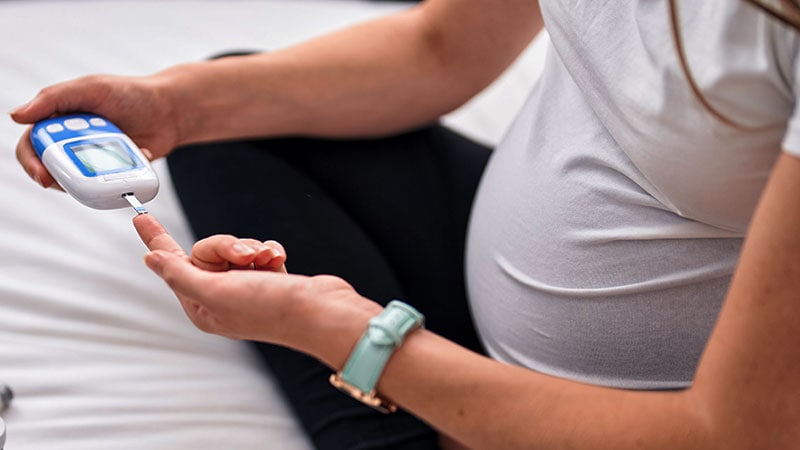TOPLINE:
Analysis of gut microbiota in early pregnancy (11-13 weeks) reveals distinct microbial signatures that predict gestational diabetes mellitus (GDM) with 98% accuracy, offering potential for early diagnosis. Researchers identified significant differences in microbial composition between GDM and healthy pregnancies at both phylum and genus levels.
METHODOLOGY:
- Researchers analyzed fecal microbiota of 61 pregnant women during early pregnancy (11-13 weeks) using 16S ribosomal RNA (rRNA) sequencing, with samples collected from Zhangzhou Second People’s Hospital between 2023 and 2024.
- Participants aged 18-40 years were geographically restricted to Zhangzhou, China, to minimize dietary heterogeneity effects on gut microbiota composition.
- Analysis included oral glucose tolerance test results at 24-28 weeks of gestation for GDM diagnosis, following World Health Organization criteria of fasting glucose ≥ 5.1 mmol/L, 1-hour glucose ≥ 10.0 mmol/L, or 2-hour glucose ≥ 8.5 mmol/L.
- Exclusion criteria encompassed preexisting type 1 or type 2 diabetes, recent in vitro fertilization, hormone therapy, antibiotic use within 3 months, and multiple pregnancies.
TAKEAWAY:
- Genus-level microbial markers demonstrated exceptional diagnostic performance (area under the curve [AUC], 98.23), while the phylum-based model achieved an AUC of 79.9.
- Patients with GDM exhibited elevated levels of Firmicutes and Proteobacteria with reduced Bacteroidota at the phylum level, while showing increased abundances of Escherichia-Shigella and Klebsiella with reduced levels of Bacteroides and Faecalibacterium at the genus level.
- Functional analysis revealed enhanced carbohydrate metabolism functions in the GDM group, including elevated glycosyl hydrolase family 35 and trehalose-phosphatase activities, suggesting microbiota-driven inclination toward elevated sugar metabolism.
- According to the authors, these early microbial alterations provide critical insights into GDM pathophysiology and progression, offering potential for early intervention.
IN PRACTICE:
“This study not only uncovers early-pregnancy gut microbiota features associated with GDM but also provides a scientific basis for the development of microbiota-based diagnostic tools, offering new insights for GDM prevention and management,” the authors of the study wrote.
SOURCE:
This study was led by Weirong Yao, The Second Hospital of Zhangzhou in Zhangzhou, China. It was published online on July 1 in Microbiology Spectrum.
LIMITATIONS:
According to the authors, while the cohort of 61 participants achieved sufficient power to detect microbial signatures with moderate effect sizes, future studies with larger samples are needed to validate generalizability, particularly for low-abundance taxa. Additionally, functional predictions based on 16S rRNA sequencing lack direct metabolite validation and cannot fully reflect microbial functional activity, necessitating future studies incorporating metabolomic and proteomic analyses for validation.
DISCLOSURES:
This study was supported by the Zhangzhou Natural Science Foundation Project (ZZ2024J47). The authors reported no conflicts of interest.
This article was created using several editorial tools, including AI, as part of the process. Human editors reviewed this content before publication.
Source link : https://www.medscape.com/viewarticle/early-gut-microbiota-changes-predict-gestational-diabetes-2025a1000hkp?src=rss
Author :
Publish date : 2025-07-02 07:01:00
Copyright for syndicated content belongs to the linked Source.
